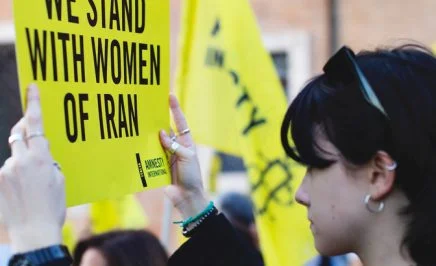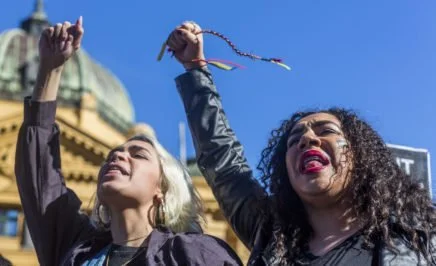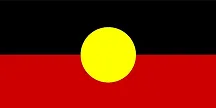Amnesty International’s annual report reveals that a change of government after almost 10 years has led to some improvement in human rights, however serious human rights concerns remain that need to be addressed as a matter of urgency.
The report finds Australia’s record severely lacking in key areas such as First Nations justice and refugee rights.
“We welcome the principled stance that the Australian Government has taken on a range of human rights abuses and encourage the Australian Government to apply the same attention and standards to all human rights abuses including the over-representation of First Nations children and adults in the criminal justice system and offshore processing of refugees and asylum seekers,” said Amnesty International Australia National Director, Sam Klintworth.
“While we’ve seen improvements in some areas such as the Justice Reinvestment package for First Nations communities and the Federal Government’s acceptance of New Zealand’s offer to resettle 150 refugees a year, we need only look at the horrific experiences of young people in youth detention, allegations of systemic abuse, the continued use of tools of torture like spithoods, and the hundreds of First Nations people who have died in custody to see that there are serious problems that require independent scrutiny.
“The continued detention of refugees and asylum seekers has ruined the physical and mental health of thousands of people who have done nothing more than ask for our protection because they can’t be safe in their own homes,” Klintworth said.
The United Nations Subcommittee on the Prevention of Torture (SPT) which evaluates places of detention against our obligations under the Optional Protocol to the Convention Against Torture (OPCAT) last month had to terminate its visit to Australia as it was denied access to facilities in Queensland and New South Wales.
“This is an international embarrassment and shows how paper-thin the commitment is to OPCAT across Australian jurisdictions, particularly New South Wales
“Even though this important international treaty was ratified in 2017, it has never been passed into domestic law, and the result is that we have grave concerns about conditions of detention in this country.
Youth detention
The annual report found that Aboriginal and Torres Strait Islander people continue to be overrepresented in the prison system. First Nations children, who represented 6% of the population aged 10 to 17, constituted 50% of those in youth detention.
“Just this month we heard revelations of Queensland authorities keeping a 13 -year-old in solitary confinement for 22 days,” Klintworth said.
“Not to mention the same state also overturning its own human rights act in order to criminalise breach of bail which will see more kids unacceptably locked up in adult watch houses.
“The truth of the matter is none of this works. If locking up vulnerable kids addressed the underlying issues which lead to offending, then we wouldn’t be in this situation.
“Federal, State and Territory governments must have the courage to listen to the experts and the evidence and start putting the level of investment they currently reserve for ineffective measures, such as highly visible policing, into diversion programs. As well, of course, as all Australian State and Territory Governments raising the age of criminal responsibility to at least 14.”
Right to protest
In 2022, New South Wales, Tasmania and Victoria adopted new laws carrying large fines and prison sentences for participating in unauthorised protests.
“We’re really concerned about the chilling effect new legislation which restricts the right to protest will have on our democracy.
“We’ve just seen the courts thankfully overturn the 15-month sentence for Violet Coco for peacefully protesting and stopping traffic for less than half an hour on the Harbour Bridge,” Klintworth said.
Human Rights Act
Last week, Federal Attorney-General Mark Dreyfus KC asked the Parliamentary Joint Committee on Human Rights to investigate updating the Federal Human Rights framework with a focus on whether the Federal Government should implement a Human Right Act.
“We’re very encouraged by the announcement of the Parliamentary inquiry. Everyone in Australia should have the same fundamental human rights in law.
“One overarching Human Rights Act is simpler and more effective than multiple pieces of legislation attempting to protect individual rights. And it has overwhelming public support as our annual Human Rights Barometer has demonstrated.
“A Human Rights Act provides an accountability framework so we can all have a tool in our kit to protect and defend our rights,” Klintworth said.









